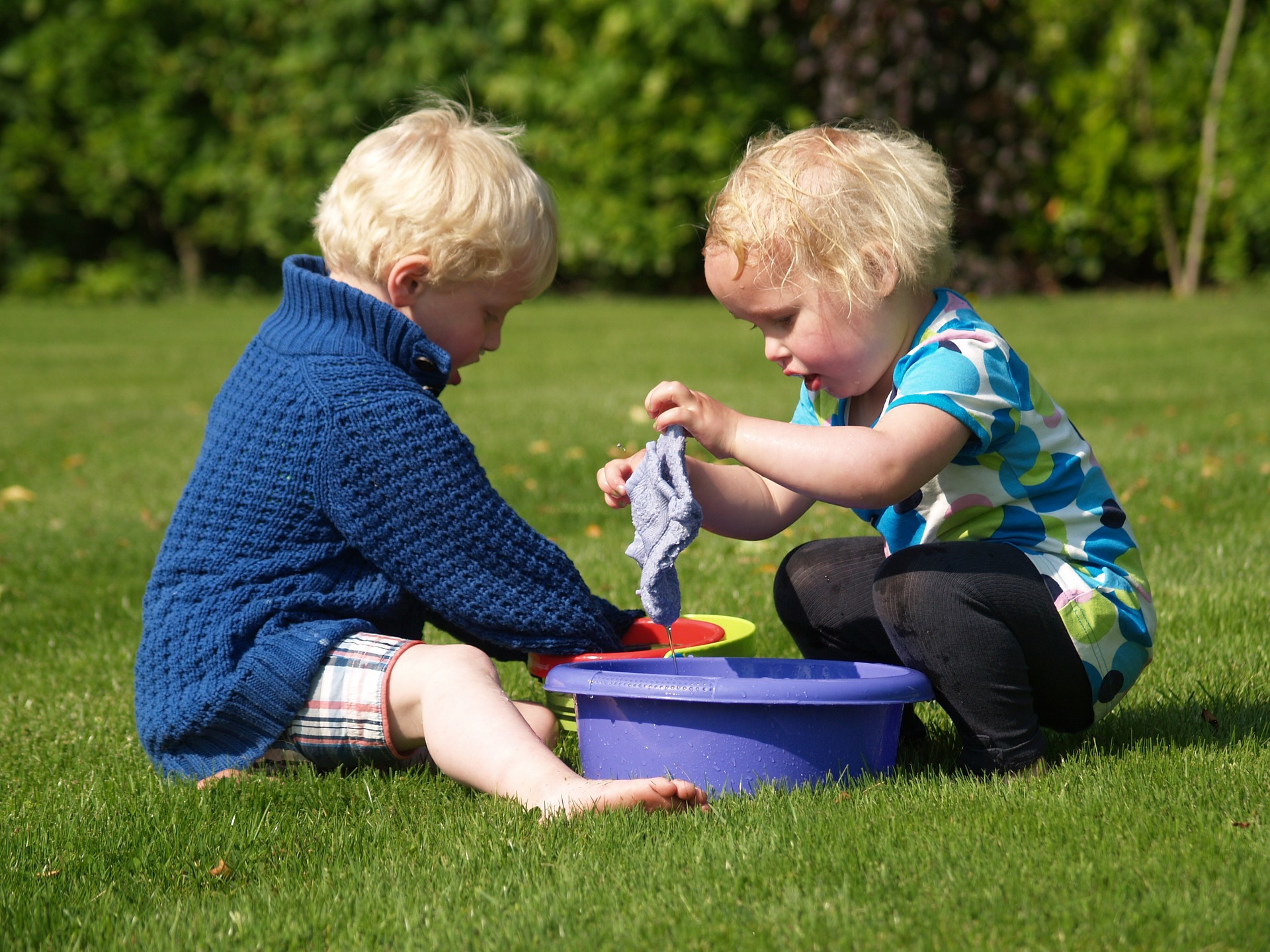One of the wishes parents have for their children is for them to socialize, to make friends, since that is after all, one of the proofs of social adaptation, the fact that one can interact with others and create meaningful relationships with the people around you. Socializing becomes an index of the child’s adaptation to kindergarten, of his emotional development. From this wish curiosity is born, or even concern: does he socialize here, in Montessori? does he play? if there are no toys, how does he interact with others? is he isolated? Valid questions and concerns that come from a parent’s love and care for their child.
So let’s see! How much do children socialize in the Montessori environment and how does that happen?
Trying to explain to myself how this myth surrounding Montessori developed, according to which the child works alone and does not socialize much, I found a few explanations.
I believe one of the most obvious one is the fact that, in Montessori the child follows an individualized path and group lessons are not the main way to teach academic knowledge. An idea developed, saying that because there are no frequent group lessons, there is no socializing either. Which is not true. The teacher creates personalized plans for each child, taking into account and observing the child’s skills, needs and interests. Each child is offered individual presentations, one on one, when he is ready to work with a certain material, afterwards being given the chance to practice as much as he needs with that activity. Yes, the child works alone, because alone he is able to focus at developing his abilities, through individual work and concentration.
You, an adult, will need the same things if you want to learn how to knit or play an instrument: someone to show you how to do it, the necessary instruments and time to practice alone, until you can do it. You will probably discover that if you are interrupted, you’ll have to start over or you won’t be able to concentrate anymore.
Individual work is not equivalent to lack of socializing. It is the child’s work of learning, developing skills, becoming good at what he does. Among these skills that he develops are also the social skills. These also develop through individual practice, but you need people to practice with, so you do it with others, in different contexts. You see someone doing something and you want to try it also. We are social beings and our nature pushes us to absorb social rules and patterns and we do this precisely in this period until 6 years old. The social models around us help us understand how society works.
In the Montessori environment, the child is offered social behaviour models through the adults around him. There are many group meetings, in which they discuss and establish classroom rules and responsibilities, in which they discuss what has happened or what has changed in the classroom, as well as different subjects that contribute to building the group cohesion and that micro-society that helps the child begin to understand how people work, what is ok to do and what isn’t. The children are involved in grace and courtesy lessons, name that might not say much to you, if you’ve never heard of it. These conversations in small groups are excellent opportunities to explain and model a rule of behaviour (when someone focuses at work, we observe from a distance, without bothering them), a way of behaving in a certain social context (at lunch, we wait for our turn to serve ourselves with food), a way of addressing someone by showing care and empathy towards them (if a colleague has stumbled and has fallen, we help him up and ask if they are ok). The adult exemplifies a behaviour and the children practice along with him. Of course, the best learning of these social rules is done in real, spontaneous contexts. When you bump into a colleague in the classroom, you say I’m sorry; if a younger colleague needs help putting their shoes on, you offer help Do you need help?. The Montessori environment offers many opportunities to practice these social rules.
The Montessori groups are mixed (0-3, 3-6 years old). That means that a child who comes into a Montessori classroom, will experience being among the youngest of the group, among the middle children and then among the older ones. That is an excellent occasion to practice socializing. When the roles change, abilities are built progressively. First, you observe the oldest ones, who work and have different skills, which motivates you, because you notice that through work you get to do more and more. Then, you get to be one of the oldest and you can refine your skills, by teaching the youngest ones, developing empathy, patience, the ability to pass on what you have learned. It is often that a child who masters a material presents it to a younger colleague. This gives him confidence and builds his self esteem.
The children have the freedom to move in the Montessori environment and the freedom to talk to others whenever the feel to do so, respecting of course the others' needs: if a colleague is working, you wait until he finishes, so as not to disturb his work; when you talk to somebody, you do it using an appropriate tone of voice, without shouting, just like you do in a society, careful to what goes on around you. The children also choose who they can work with, if they decided to work with a material suitable for working with a colleague or in a group. The humming of a Montessori classroom is a distinct feature and it is a sign that the small classroom society is working and blooming. The humming comes from children talking to each other, talking to themselves as they work, children who spend time reading a book out loud or preparing a meal with other colleagues.
Many of the Practical Life area materials are dedicated to self care and to care for the environment. The child prepares snacks on his own, snacks that he often decides to share with the others. Here is a picture with special significance: a 3 year old walking around carrying a small plate, that has banana slices carefully set on it, with toothpicks nicely set in each one, asking colleagues if they want some. The result of her work is visible, tangible, and it is her contribution to the group’s needs, because she has prepared a snack for her and for her colleagues. Many of the skills children develop are applicable to day to day actions, done for themselves and for other colleagues or adults. A parent once told me about how the mat he always had under his feet while working at his home office was carefully rolled and unrolled daily by his daughter, who payed attention to his needs and wanted to keep him warm.
The snack they have together, the conversations at the reading corner on different topics that interest them, working together with a friend, observing a colleague who works, shared responsibilities that build the classroom, offering a kind word to a colleague in a rough moment, talking about feelings, needs and the group’s life are just some of the moments in which the children socialize in a healthy way, that contribute to the group’s unity and to the individual development of each child.
I mentioned a healthy way of socializing, because it is important how a child socializes. Socializing without showing care towards the people around you, without using your energy in a constructive way, and using it in a way that hurts you and others is in fact a chaotic way of being next to each other. The way he socializes in this period forms social skills and patterns that a child will use in his future relationships. Children need to learn and practice skills that will allow them to adapt to society, expressing their ideas and their needs while at the same time, respecting others. The Montessori environment offers them opportunities to learn how to listen without interrupting, how to express their opinions, how to understand that others also have feelings and needs, how to ask for help and offer it, how to develop self-control and collaborate for a mutual purpose, because everyone is valuable and must be listened to.
In conclusion, children socialize in Montessori. They talk and they talk a lot, careful to those around them, but without cancelling themselves. Children talk when they feel the need to do so, not on a schedule established by someone else, learning constantly what they can do for themselves and for others, how they can bring their contribution in a classroom that does not function without all its members, without everyone’s involvement. Everyone matters, everyone is important and what everyone says has value and is heard.

